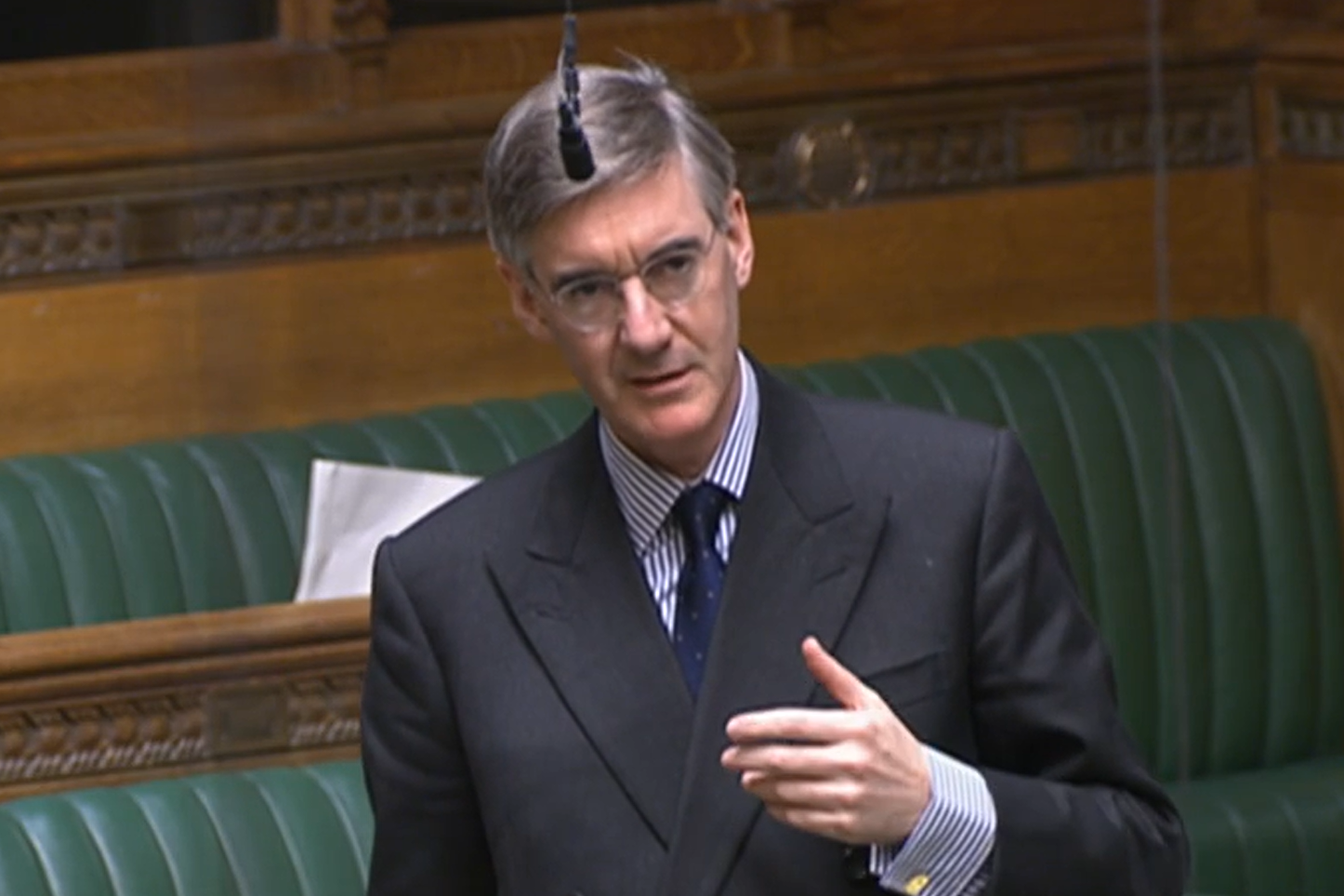Senior Tories call for rethink on corporation tax rise in order to boost growth
Jacob Rees-Mogg called for ‘low tax rates with few exclusions’ for businesses.

Your support helps us to tell the story
From reproductive rights to climate change to Big Tech, The Independent is on the ground when the story is developing. Whether it's investigating the financials of Elon Musk's pro-Trump PAC or producing our latest documentary, 'The A Word', which shines a light on the American women fighting for reproductive rights, we know how important it is to parse out the facts from the messaging.
At such a critical moment in US history, we need reporters on the ground. Your donation allows us to keep sending journalists to speak to both sides of the story.
The Independent is trusted by Americans across the entire political spectrum. And unlike many other quality news outlets, we choose not to lock Americans out of our reporting and analysis with paywalls. We believe quality journalism should be available to everyone, paid for by those who can afford it.
Your support makes all the difference.Hiking corporation tax to 25% is “not a good approach” to encouraging investment in the UK, senior Tory Jacob Rees-Mogg has warned the Government.
The former business secretary hit out at the planned tax rise for companies while describing tax allowances in the Budget as an attempt to “salami-slice” the hike to “pretend it’s not much of a rise”.
Jeremy Hunt confirmed the tax on businesses would rise from 19% to 25% in his Budget speech, starting from April.
Senior Conservatives, including Mr Rees-Mogg and former home secretary Priti Patel, urged him to rethink the move.
The best approach to tax policy is low tax rates with few exclusions
North East Somerset MP Mr Rees-Mogg described several measures in the Budget, such as scrapping the lifetime tax-free pension allowance, as “very welcome”.
He added: “So, we have a rise now in corporation tax, but we then sort of salami-slice it a bit with some capital allowances to pretend it’s not much of a rise. This is not a good approach to tax policy.
“The best approach to tax policy is low tax rates with few exclusions; we hear powerful arguments from the other side against tax avoidance, but this is setting up a tax avoidance scheme that companies are being asked to carry out because the Government thinks it may be a way businesses will spend money that’s approved by the Government.
“But, actually, who knows best how to spend that money? Businesses.”
Witham MP Ms Patel, meanwhile, encouraged the Government to keep the level of corporation tax “under review”.
She said: “Just on the issue of corporation tax, when it comes to the wider prospectus of the minimum rate of corporation tax … we know that the introduction of the minimum effective tax rate will be delayed in Washington and other countries, and I would just ask him again to think carefully about the timing of this. Why now?”
Conservative former minister Sir John Redwood also compared the UK’s approach to taxing businesses with the US and the Republic of Ireland, both of which he claimed have taken measures more likely to boost growth.
Sir John claimed the US’s Inflation Reduction Act would offer “all sorts of tax breaks, incentives and subsidies for a wide range of industries”, acting as a “magnet” to investment.
On Ireland’s taxes, he added: “The proof that lower rates produce more revenue and help more growth is in the way in which Irish GDP per head is so much higher than the United Kingdom’s, and the way in which business tax per head raised is so much higher in the Republic of Ireland than it is here at home in the United Kingdom.”
Ranil Jayawardena, who served in the cabinet during Liz Truss’ brief premiership and formed the Conservative Growth Group in January, also backed slashing the tax on business in future.
He told the Commons: “We should still seek to revisit corporation tax in the months and years ahead, because any increase in corporation tax will make us less competitive, reduce investment in the long run, stifle job creation. All of which are required for growth.”
Mr Jayawardena added: “You don’t have to believe me, even the IFS (Institute for Fiscal Studies) says that this won’t raise the expected revenue. The increase in corporate tax won’t raise expected revenue that is currently suggested by some.”
Labour leader Sir Keir Starmer had earlier criticised the Chancellor, claiming he was “dressing up stagnation as stability”, and that the UK was the “sick man of Europe once again”.
Raising concerns over growth forecasts, Sir Keir added: “This is a failure you can measure not just in the figures but in the empty pockets of working people right across the country.
“Thirteen years without wage growth, 13 years no better off, 13 years stuck in a doom loop of lower growth, higher taxes and broken public services.”
The Chancellor had earlier defended the plans to raise corporation tax, telling MPs: “We already have lower levels of business taxation than France, Germany, Italy or Japan. But I want us to have the most pro-business, pro-enterprise tax regime anywhere.
“Even after the corporation tax rise this April, we will have the lowest headline rate in the G7 – lower than at any period under the last Labour government.
“Only 10% of companies will pay the full 25% rate. But even at 19% our corporation tax regime did not incentivise investment as effectively as countries with higher headline rates.”
Mr Hunt also laid out measures the Government had already taken to encourage business investment, telling the Commons: “For larger businesses we have had the super deduction, introduced by the Prime Minister, which ends this month.
“For smaller businesses we have increased the annual investment allowance to £1 million, meaning 99% of all businesses can deduct the full value of all their investment from that year’s taxable profits.”